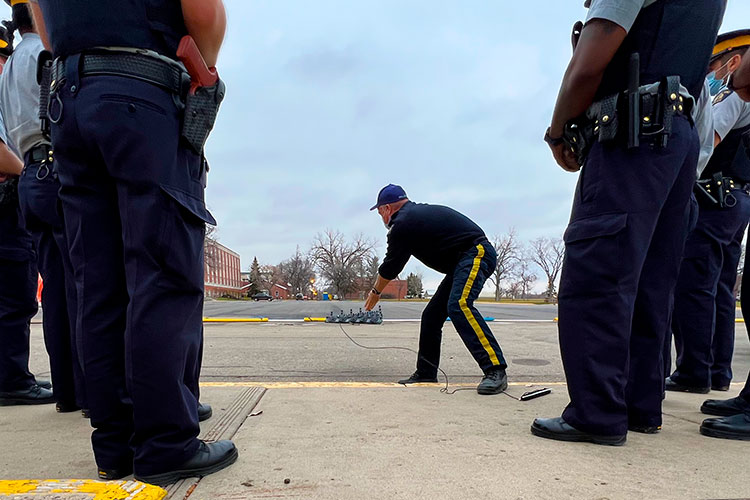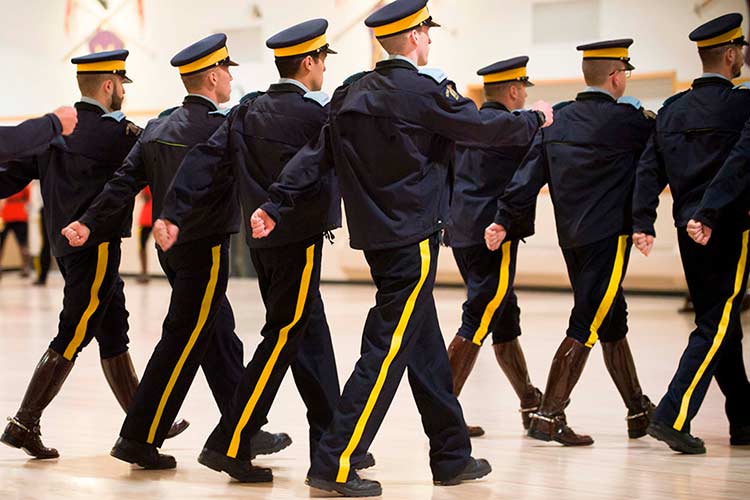Week 10: Earning their stripes
Spike belts

Shifting focus in police driving, cadets go back to the classroom for an introduction and facilitator demonstration to tire deflation devices. Accuracy, safety and speed are all factors in the decision to use the belts.
There are many learning points where cadets will only have an introduction or brief exposure during the basic training received at the RCMP Academy. More advanced training for some of these specialized skills is provided in the field or during in-service training.
It surprised me how much technique there is to deploy the spike belt effectively. It looks much easier in the movies.
Blues Challenge

This week, cadets challenge to wear their “blues” – navy pants with the RCMP’s signature yellow stripe. Cadets received these with their second kit issue, but they don’t get to wear them until they pass this test. The Blues Challenge is one of the milestones of the training experience at Depot.
This is a team challenge. Cadets report to drill and answer questions about the RCMP. Topics can include history, the insignia, the badge and any information learned in training to date.
This test shows cadets the importance of teamwork as they pass or fail as a troop.
Baton
As cadets move through training, they get to know different intervention options. One item is the police defensive baton. Cadets train with a foam version to avoid potential injury. They learn where it fits on the Incident Management Intervention Model and how to use it safely.
Outside agency
Provincial Association of Transition Houses and Services of Saskatchewan
Depot partners with local organizations who give presentations to cadets. These agencies have strong community connections and share knowledge that plays an important role in policing.
The Provincial Association of Transition Houses and Services of Saskatchewan (PATHS) talks to cadets about intimate partner and family violence.
Police are often the first contact for victims/survivors. Cadets learn about the impact of trauma and what to look out for in rural and remote communities. They discuss barriers to leaving and reporting domestic violence. Cadets also learn why sharing information and maintaining strong community partnerships are key to ensuring safety.
- Date modified: